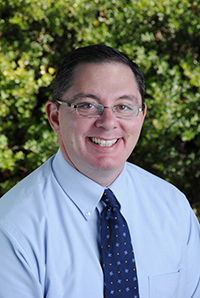| Course 1: Introduction to Neurodevelopment and Instructional Decision Making: Attention and Memory |
This introductory course is the first in a five-course series designed to earn an Advanced Professional Development Certificate in a Neurodevelopment (ND) Strength Based Approach to Teaching and Learning. In this initial course, a neurodevelopmental framework on teaching and learning will be introduced, describing a lens through which participants can view the unique strengths, challenges, and affinities of students. In addition this course will provide program participants with knowledge of the neurodevelopmental constructs of Attention and Memory and strategies in applying these constructs to instruction. Participants will be able to identify the characteristics of attention and memory, self-assess and develop a profile of their own strengths, challenges, and affinities as a learner, and apply these strategies with students. Finally, participants will be able to identify the attention and memory demands of lessons and class activities, design activities with embedded supports, and engage in analysis of an individual student’s learning as it is impacted by strengths and challenges in attention and memory. |
| Course 2: Instructional Decision Making: Language and Higher Order Thinking |
Course 2 will provide program participants with knowledge of the neurodevelopmental constructs of Language and Higher Order Cognition and how to apply knowledge of these constructs to instruction. Participants will be able to identify the language and higher order demands of lessons and class activities and engage in analysis of an individual student’s learning as it is impacted by strengths and challenges in language and higher order cognition. |
| Course 3: Instructional Decision Making: Temporal Sequential Ordering and Spatial Ordering |
Course 3 will provide participants with knowledge of the neurodevelopmental constructs of Temporal Sequential Ordering and Spatial Ordering and skills in applying knowledge of these constructs to instruction. Participants will be able to identify the characteristics of temporal sequential ordering and spatial ordering and self-assess individual strengths, challenges, and affinities, identifying their own profile as a learner. Finally, participants will design activities with embedded supports, and engage in analysis of an individual student’s learning as it is impacted by strengths and challenges in temporal sequential ordering and spatial ordering. |
| Course 4: Instructional Decision Making: Neuromotor and Social Cognition |
Course 4 will provide participants with knowledge of the neurodevelopmental domains of Neuromotor and Social Thinking, and skills in applying knowledge of these constructs to instruction. Participants will be able to identify the neuromotor and social demands of lessons and class activities, design activities with embedded supports, and engage in analysis of an individual student’s learning as it is impacted by strengths and challenges in neuromotor skills and social thinking. |
| Course 5: Putting it All Together: Analyzing and Applying the Neurodevelopmental Strength-Based Approach to Teaching and Learning in K-12 Schools |
Course 5, the final course in the series, will serves as a culminating experience in which program participants will apply information from previous courses to demonstrate the ability to implement the neurodevelopmental framework in their practice. As a result, participants will be able to develop a student/class profile using assessment data of student performance. Customized accommodations, interventions, and modifications will be developed to support students’ individual needs. |




